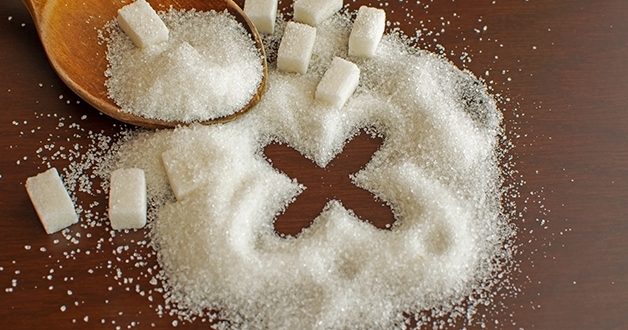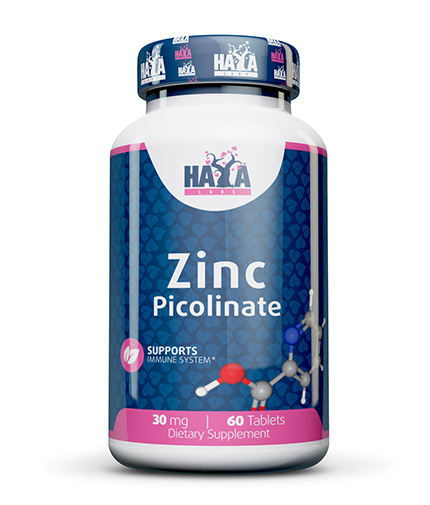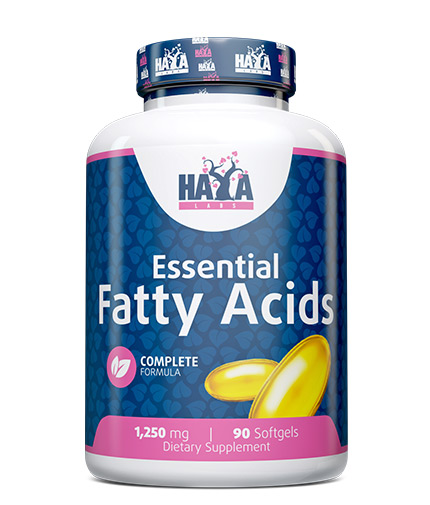
How to Reduce Sugar
0
1690
Several ideas for less sugar in the menu
The modern food industry provides more sugar than a person really needs. Hidden refined sugar is undesirable, and excessive amounts can lead to a number of complications and health problems. Fortunately, there are ways to reduce our intake of sugar in our menu.
Every year, new research has emerged in the field of nutrition and new theories are presented, backed by solid experiments. In parallel, old claims are dismissed and disputed with undeniable (at this stage) evidence. One, I think, remains constant - excesses are not desirable, and overeating with a certain type of food is not a good idea.
We will hardly hear of a theory that supports excessive consumption of sugar. On the contrary, the negative consequences of over-consumption of sugar (and especially white refined and its artificial substitutes) are real.
Why Reduce Sugar?
We have heard many times that the difference between the drug and the poison is in the dose. Taking too high doses of sugar certainly, does not belong to the "medication" column.
Sugar in large quantities can lead directly or indirectly to:
• insulin resistance and type 2 diabetes;
• weakening of the immune system;
• increasing the risk of chronic diseases;
• increase in triglycerides;
• a negative impact on the calcium-phosphorus balance;
• overweight and obesity;
• fungal and bacterial infections;
• cardiovascular diseases;
• osteoporosis;
• speeding up aging processes;
• hepatic impairment;
• arthritis;
• The inability of the body to absorb important minerals.
Types of sugar
When talking about sugar, most people probably imagine white, table sugar. But besides it there are other types:
• Glucose - the main blood sugar in the human body, energy source;
• Fructose - fruit sugar;
• Lactose - milk sugar;
• Sucrose - in the stomach, under the action of glycoside hydrolases, decomposes to equal parts glucose and fructose (1 molecule of glucose and 1 molecule of fructose); table sugar;
• Maltose - is formed by the degradation of starch;
• Raw sugar - partially refined sucrose;
• Brown sugar;
• Molasses - sludge left after the extraction of sugar cane or beet juice;
• Powder sugar - table sugar, ground on fine crystals; add starch;
• Copper;
• Maple sugar - sucrose, which is produced by cooking maple juice;
• Corn syrup - contains maltose and glucose; made from corn starch;
• Fructose-rich corn syrup - a caloric sweetener that is used in foods and drinks to increase sweetness;
• High-strength alcohols - maltitol, maltodextrin, sorbitol, xylitol; excessive use may lead to diarrhea, abdominal swelling, nausea, gastrointestinal problems.
When we consume simple sugars or undergo significant carbohydrate processing, their degradation in the body occurs almost immediately. Sugar quickly falls into the blood, causing insulin secretion.
Since blood sugar levels have risen sharply, the pancreas (from which insulin is released) reacts violently - high levels of insulin are released and blood sugar decreases as well. There is a rapid flow of energy, followed by a sharp drop.
If the share of simple sugars takes up much of the daily menu, and if such a diet is common, there is a lot of stress on the cells that exhausts them.
When cells can not secrete the necessary insulin due to wasting, it leads to diabetes mellitus.
How to reduce sugar?
We do not need to stop the sugar, just to consider what part it occupies in our diet and to carefully select its sources, because it matters whether you sweeten with pure fructose or eat a fruit.
read more
No matter what sugar is, however, it should not be overstretched.
Sugar we do not know about - read the labels
Sugar is not only used for sweetening, but also for preserving color, extending shelf life, preserving, making everyday products (paper cups, hamburgers, adhesives, hair sprays, pharmaceutical tablets and .n). That's why it's very important to read the labels when shopping.
People are shopping fast and fast because they have no time. They buy semi-prepared foods or canned (ready) dishes to save cooking time. But while saving time, in fact, in this way, health is being robbed to a greater or lesser extent.
If you're looking at the content of different canned foods, sauces, breakfast cereals, sweet carbonated drinks, and others, you'll be amazed at the sugar content in them.
Find substitutes for foods with a higher sugar content
The fact is that in many foods from the modern industry there is added sugar. It is not what is naturally found in food (fruit) but is refined - it provides more calories and sweetness, but without vitamins and minerals (on the contrary - it contributes to their "robbing" of the body).
For some of these foods, healthier substitutes can be found.
• In 100 g of ketchup there are almost 22 g of sugars, and in 100 g of tomato paste, there are 5 g of sugar.
• In lemonade powder diluted with water, there are 3.5 g of sugars per 100 g of finished product. In homemade lemonade made with 100 ml of fresh lemon juice, there are 2.5 g of sugars per 1000 g of finished product.
• Ready sweetened yogurts have more sugar than needed. Their alternative is natural yogurt with added fresh fruit.
• Replace sweet, carbonated beverages with an even mixture of unsweetened fruit juice and naturally carbonated water.
• Try an alternative to ice cream by making homemade ice cream from frozen fruit.
• It is a crime to buy canned vegetable soups when you can quickly and easily prepare fresh, seasonal vegetables. You will avoid the excess content of refined sugar, and in a bonus, you will get a great flavor and aroma.
• Instead of a piece of ready-made chocolate cake, try the recipe for a raw chocolate cake.
Both are calorie and high-carbohydrate, but home-made has a higher nutritional value. And last but not least - you can regulate the amount of sugar and the quality of your products.





